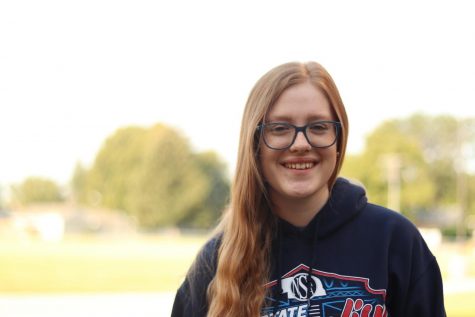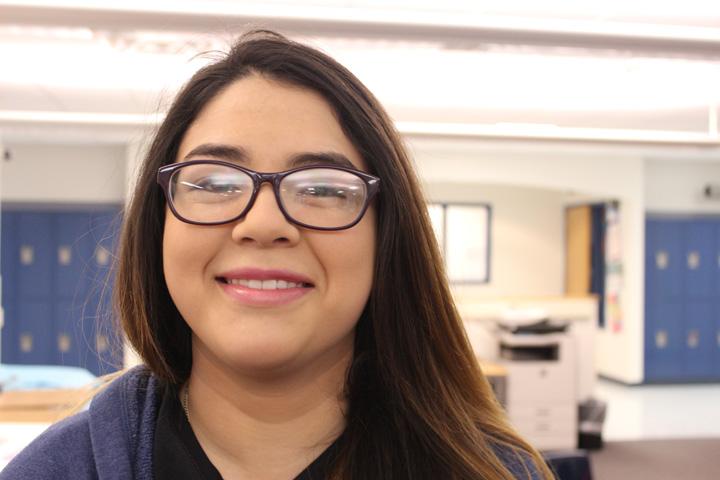The road to America
Seeking citizenship
Senior Claudia Zarraga walks the same hallways as you everyday, but her school day could very well be twice as hard as yours. “I don’t think anything has been easy. Everything I wanted to be successful in, I had to work really hard for it,” said the Mexican native. Zarraga isn’t only graduating from North Platte High this year, she’s also exiting a special program certifying that she’s able to learn, speak, and work fluently in more than one language.
The North Platte Public School’s English Language Learning (ELL) program is a K-12 class designed to help students from different cultures learn and understand the English language. Zarraga thought she would be put into an American classroom with no assistance. “When I first got into the [ELL] program, I was really excited because I was going to get help with my English,” she said. Zarraga was first entered into an ELL program in 6th grade in Wood River, Nebraska. “There was more Hispanics, so I didn’t need to learn English because I would always have a Spanish [speaking] person to help me,” she said.
When Zarraga got to North Platte two years later, she said her teacher helped her with her homework and taught them a little bit of English. “Just very basic to understand our classes,” she said. She and the other students spent around three or four hours a day with their teacher. “Freshman year was when I really started speaking English,” said Zarraga, “The classes that were offered here were more English-learning with 30 minutes homework time.” She said it had helped her because majority of the time she was learning to speak and understand the English language. “I got to practice my English a lot, and that’s how it improved,” she said.
“There was seven of us. Of those seven, I was the second [person] who knew the most English,” she said. This was when the ELL class was during 4th period. “I spent four years learning my English,” she said, “At the end of sophomore year, I got a letter saying I was a Level Five.” A five is the highest level you can get, and it takes most people five to six years to learn and speak English fluently at that level.
She got accepted to graduate early from NPHS this month, and hopes to return to Mexico to take care of her grandmother. “She’s putting college and job opportunities on hold to go back to her family,” said ELL educator Abby Martinez, “I think that shows how family-centered they are too.”
“Being bilingual, I’ll have more job opportunities and a higher style of life,” Zarraga said. She has already been offered a job with Lincoln Public Schools as a translator. “The pay starts at $15 an hour, and goes up depending on time,” she said. If she gets accepted into the University of Nebraska at Lincoln, she’ll take the job. She’s also been offered similar positions at other places in other states. “They’re good options,” she said.
“My long term goal is to become a special agent and work for the DEA or the FBI, but before, I know I have to become a US citizen on my 18th birthday,” she said. The citizenship test takes around an hour or more to complete. “The questions are really hard,” she said. The test can be taken orally or written. “Citizenship doesn’t affect [my] rights in Mexico,” she said. “[In America], the difference between a green card and citizenship is the rights you have and how long I can stay out of the country.” Where Zarraga’s hard work and efforts will actually take her is still unknown, but potentially, the only thing that she won’t be able to do in America is run for president.

Haley McKain 2018
Co-Editor in Chief
A little bit about me
I cry all the time. Not always in a bad way or anything, but when I’m mad, sad, and especially...


Kevin Escobar • Feb 8, 2016 at 10:36 AM
i like this article because it shows the obstacles that people like me and Claudia that come from another country looking for a better live have to go through and how we work hard to get what we want and at the end hard work pays off.